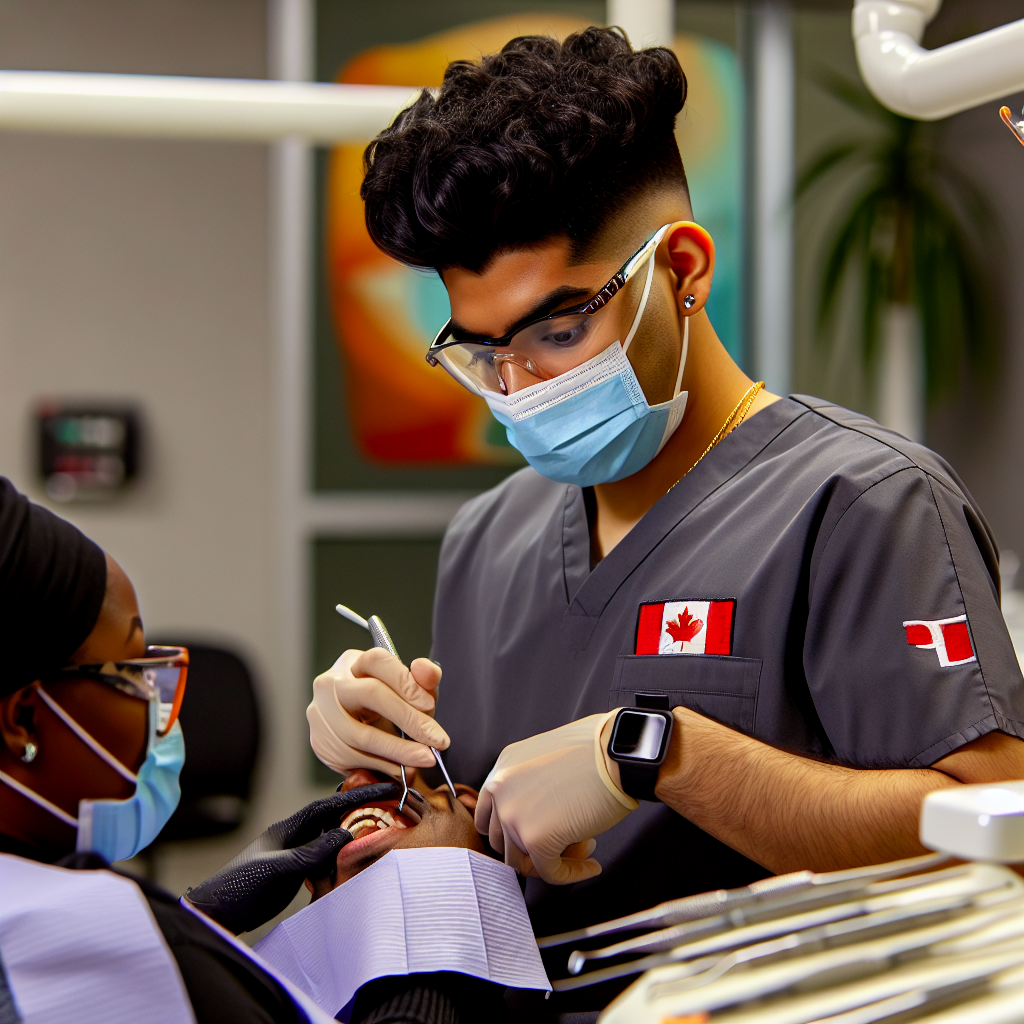Understanding the Structure of Your Internship or Residency Program
Orientation and Onboarding
Your journey begins with orientation.
This phase familiarizes you with the facility.
You will meet your supervisors and peers.
Documentation and policies will also be covered.
Ask questions to clarify any uncertainties.
Daily Responsibilities
Understand your daily obligations clearly.
Practice skills under supervision regularly.
Participate in patient care and management.
Attend daily briefings and discussions.
Seek feedback to improve your performance.
Evaluation and Feedback Mechanisms
Your performance will undergo regular evaluations.
These assessments will include both informal and formal reviews.
Use feedback as a tool for growth.
Don’t hesitate to ask for constructive criticism.
Document your progress and areas needing improvement.
Rotations and Specializations
Expect to rotate through various departments.
Each rotation offers unique learning opportunities.
Focus on developing specialized skills in each area.
Network with professionals across different units.
These experiences will enrich your career path.
Mentorship and Guidance
Seek a mentor during your program.
A mentor will provide invaluable support.
They guide you through challenges and decisions.
Utilize their experience to advance your skills.
Build a professional relationship with your mentor.
Unlock Your Career Potential
Visualize a clear path to success with our tailored Career Consulting service. Personalized insights in just 1-3 days.
Get StartedNetworking and Professional Development
Engage with peers, faculty, and professionals.
Attend workshops and seminars regularly.
Join professional organizations in dentistry.
This engagement expands your knowledge base.
It also opens doors for future opportunities.
Developing Strong Relationships with Mentors and Colleagues
Importance of Mentorship
Mentorship plays a crucial role in your dental career.
A skilled mentor provides guidance and support.
They share valuable insights from their experiences.
This relationship fosters your professional growth.
Additionally, it boosts your confidence in clinical settings.
Finding the Right Mentor
Start by identifying potential mentors in your program.
Look for professionals whose work inspires you.
Consider mentors outside your immediate circle.
Network at conferences or workshops for greater exposure.
Approach mentors with a clear understanding of your goals.
Building a Trusting Relationship
Establishing trust is essential in any mentor-mentee relationship.
Communicate openly about your goals and challenges.
Be receptive to their feedback and suggestions.
Show appreciation for their time and advice regularly.
Consistency in interaction builds a deeper connection.
Collaborating with Colleagues
Fostering strong relationships with colleagues enriches your experience.
Engage in group activities or study sessions regularly.
Offer assistance to your peers when possible.
Participate in team-building exercises to enhance camaraderie.
Share knowledge and resources to promote mutual growth.
Effective Communication Skills
Clear communication is fundamental in a collaborative environment.
Practice active listening during conversations.
Ensure that your messages are concise and respectful.
Ask questions to clarify and understand better.
Utilize positive feedback to encourage colleagues.
Networking Opportunities
Seek opportunities for networking within your institution.
Attend seminars, workshops, and conferences to meet professionals.
Engage with alumni who can offer guidance and support.
Building a diverse network opens doors for future opportunities.
Maintain these relationships through regular communication.
Time Management Skills for Busy Dental Interns and Residents
Understanding Time Management
Time management is vital for dental interns and residents.
It directly impacts your ability to perform efficiently.
To excel, you must prioritize and organize your tasks effectively.
Setting Clear Priorities
Begin each day by identifying urgent tasks.
Use a priority matrix to categorize your responsibilities.
This method will enable you to focus on high-impact activities.
Review your priorities weekly to adjust as needed.
Creating a Structured Schedule
A structured schedule helps you allocate your time wisely.
Create a daily timetable, including work and study hours.
Be sure to include breaks to recharge your mind.
Digital calendars can keep you organized and remind you of tasks.
Setting Realistic Goals
Achieving goals requires realistic expectations.
Break larger tasks into smaller, manageable steps.
This approach prevents overwhelm and facilitates progress.
Utilizing Time-Blocking Techniques
Time-blocking can enhance your focus and productivity.
Allocate specific time slots for different tasks or activities.
This technique reduces the temptation to multitask.
Learning to Delegate When Possible
Delegating responsibilities can lighten your workload.
Identify tasks that others can handle effectively.
Trusting your colleagues fosters teamwork and shared success.
Regularly Reviewing and Reflecting
Frequent reflection on your time management strategies is essential.
Assess what works for you and adjust your methods accordingly.
Consider keeping a journal to track your progress.
Seeking Feedback and Support
Don’t hesitate to seek feedback from mentors or peers.
They can provide insights into your time management efficiency.
Support from others can motivate and hold you accountable.
See Related Content: A Day in the Life of a Canadian Dentist
Mastering Clinical Skills
Importance of Clinical Skills
Clinical skills form the foundation of your dental practice.
They enable you to provide effective treatment to patients.
Additionally, mastering these skills builds patient trust.
Core Clinical Techniques
Begin with fundamental techniques such as diagnosis and treatment planning.
Learn to conduct thorough assessments during patient evaluations.
Enhance your skills in performing clinical procedures accurately.
Regular practice is essential to improve precision.
Effective Communication
Communication is key to successful patient interactions.
Practice active listening and empathy during discussions.
Clearly explain procedures to alleviate patient anxiety.
Use layman’s terms for better understanding.
Seeking Feedback
Constructive feedback is vital for growth in clinical skills.
Engage with mentors and peers for insights on improvement.
Consider their observations when performing clinical tasks.
Adjust your techniques accordingly to refine your practice.
Continuous Education
Stay updated with the latest advancements in dentistry.
Attend workshops and conferences regularly.
Review current literature on emerging techniques.
Pursue specialized training to enhance your expertise.
Practice Simulation
Utilize simulation labs for hands-on experience.
Work on models to gain confidence before treating real patients.
Record your procedures to review and improve upon them.
Practice different scenarios to be well-prepared for challenges.
Delve into the Subject: Essential Skills Every Canadian Dentist Must Have
Importance of Continuing Education and Staying Updated
Enhancing Clinical Skills
Continuing education sharpens your clinical skills.
It keeps you abreast of advancements in dental techniques.
Moreover, it empowers you to provide top-notch patient care.
Stay engaged with hands-on workshops and seminars.
These experiences build your confidence and expertise.
Keeping Up with Technological Advancements
Dentistry rapidly evolves, particularly with technology.
Staying updated on new tools is crucial.
Integrating modern equipment enhances your practice.
For instance, digital imaging improves diagnostics significantly.
Embrace tools that streamline your workflow and improve outcomes.
Expanding Professional Network
Continuing education provides networking opportunities.
Connecting with peers fosters collaboration and mentorship.
Exchange ideas with others facing similar challenges.
Such relationships can lead to referrals and career growth.
Engagement in professional associations also proves beneficial.
Adapting to Evolving Patient Needs
Continuing education helps you understand changing patient demographics.
Today’s patients have diverse needs and preferences.
Enhance your communication skills through ongoing training.
Learning cultural competency boosts patient satisfaction and trust.
Ultimately, responsive care leads to better health outcomes.
Meeting Licensing and Certification Requirements
Most states require continuing education for licensure renewal.
Stay informed about specific requirements in your area.
Attending courses ensures compliance with regulations.
Moreover, certifications may expand your practice scope.
Remain proactive about your professional credentials.
Explore Further: How Podiatrists Treat Bunions Without Surgery

Networking: Building Connections in the Dentistry Field
Importance of Networking
Networking plays a crucial role in the dentistry field.
It helps you connect with peers and mentors.
Building a professional network can enhance your career opportunities.
Moreover, strong connections can lead to job offers and collaborations.
Attending Industry Events
Industry events are excellent for networking.
Conferences provide a platform to meet influential figures.
Workshops allow you to learn and connect with fellow interns.
Always carry business cards to share your contact information.
Joining Professional Organizations
Consider joining dental associations.
Organizations like the American Dental Association offer valuable resources.
Membership provides access to exclusive networking events.
Additionally, you can participate in special interest groups.
Utilizing Social Media
Social media can significantly expand your network.
Platforms like LinkedIn are vital for professional connections.
Share your experiences and accomplishments online.
Follow industry leaders and engage with their content.
Seeking Mentorship
A mentor can guide you through your internship or residency.
Reach out to experienced dentists and ask for their insights.
Regular communication with your mentor is essential.
During meetings, discuss your career goals and challenges.
Building Relationships with Colleagues
Your colleagues can be valuable networking contacts.
Collaborate with them on projects and share knowledge.
Attend team events to strengthen your relationships.
Always be supportive and helpful; reciprocity matters.
Volunteering Opportunities
Volunteer at community health events and clinics.
This experience helps you meet other dentistry professionals.
Additionally, it demonstrates your commitment to the field.
Boost your visibility by taking on leadership roles.
Explore Further: The Role of Dentists in Promoting Oral Health
Managing Stress and Maintaining Work-Life Balance
Understanding Stressors in Internships and Residencies
The dental field can be demanding during internships and residencies.
Long hours and high expectations often lead to significant stress.
Recognizing stressors is vital for managing them effectively.
Common stressors include patient care, exams, and time management.
Be aware of your own limits and communicate them to others.
Effective Time Management Techniques
Good time management helps prevent burnout and stress.
Prioritize tasks by urgency and importance.
Use tools like calendars and to-do lists to stay organized.
Set aside specific times for studying, patient care, and personal time.
Regularly review and adjust your schedule as needed.
Practicing Mindfulness and Relaxation
Incorporate mindfulness techniques to manage stress.
Deep breathing exercises can help calm your mind quickly.
Take short breaks throughout the day for mental clarity.
Consider meditation or yoga to enhance relaxation.
These practices can significantly improve your focus and emotional well-being.
Building a Support Network
A strong support network is essential during your training.
Connect with fellow interns and residents for shared experiences.
Seek mentorship from experienced professionals for guidance.
Discuss your feelings with friends and family outside the program.
Support systems offer emotional relief and practical advice.
Maintaining a Healthy Lifestyle
Your physical health impacts your mental well-being.
Prioritize regular exercise, which boosts endorphins and relieves stress.
Eat a balanced diet to sustain energy levels throughout the day.
Adequate sleep is essential for optimal performance.
Consider hobbies and social activities that recharge your spirit.
Setting Boundaries Between Work and Personal Life
Establish clear boundaries between work and home life.
Avoid bringing work-related stress into your personal time.
Communicate your availability to colleagues and supervisors.
Make time for activities that bring you joy and relaxation.
Practice saying no when necessary to maintain your sanity.
Receiving and Implementing Feedback for Professional Growth
Embracing Constructive Criticism
Constructive criticism is essential for growth during your internship or residency.
It helps you identify areas needing improvement.
Moreover, it provides specific guidance on how to enhance your skills.
By embracing feedback, you demonstrate a willingness to learn.
This attitude inspires confidence among your mentors.
Creating an Open Dialogue
Encourage open communication with your supervisors.
Ask for feedback regularly, rather than waiting for evaluations.
This proactive approach shows your commitment to self-improvement.
Additionally, it allows you to address concerns before they escalate.
Remember, feedback should be a two-way street.
Reflecting on Feedback Received
Take time to reflect on the feedback you receive.
Consider how it relates to your personal goals and values.
This reflection enables deeper understanding and application of the advice.
Additionally, it helps you internalize lessons learned.
Consider maintaining a journal to track your progress.
Setting Actionable Goals
Translate feedback into actionable goals for yourself.
Break these goals down into smaller, manageable tasks.
Regularly review your progress toward these goals.
By doing so, you ensure continuous improvement over time.
Seeking Additional Perspectives
Don’t limit feedback to just one source.
Seek input from multiple mentors and colleagues.
Diverse perspectives can enrich your understanding.
This practice broadens your learning experience.
It also fosters stronger relationships within your professional community.
Implementing Changes
Once you’ve received feedback, implement the necessary changes.
Show your commitment by applying what you’ve learned.
Monitor the results of these changes closely.
This process reinforces the importance of feedback in professional growth.
Celebrating Progress
Recognize your progress as you implement feedback.
Take the time to celebrate your achievements, no matter how small.
This celebration boosts your motivation and confidence.
Furthermore, it encourages a positive attitude toward future feedback.




